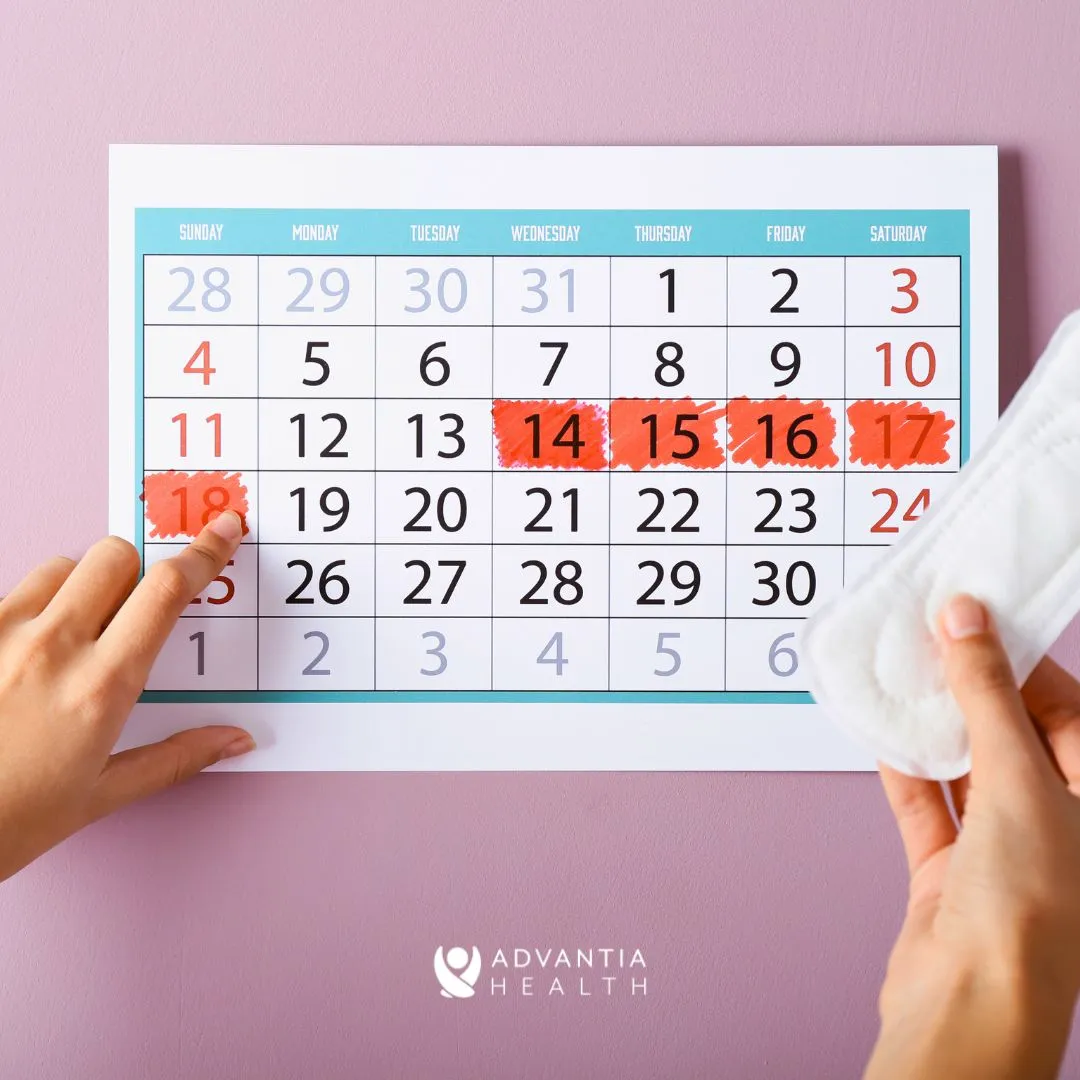
Published on: 16 January, 2024
Read Time: 4 min
Should I Train Differently During My Period?
Understanding your menstrual cycle is essential for optimizing your well-being, specifically in tailoring nutrition and exercise to each distinct phase. As the cycle unfolds over approximately 28 days, its various stages influence your hormones and stress levels.
In this blog, we’ll outline the distinct phases of the menstrual cycle and provide guidance on how to adapt your nutrition and exercise regimen to support your overall health. For any questions or concerns regarding your health, we recommend seeking advice from a women’s healthcare provider near you.
Menstrual Phase and Follicular Phase (Days 1-14)
During the initial 14 days of your menstrual cycle, your body experiences a surge in estrogen and progesterone. This hormonal influx enhances stress resilience, allowing for more robust training and exercise recovery.
- Nutrition during the menstrual phase: Emphasize a balanced diet with a focus on healthy foods such as leafy greens, lean proteins, and good fats, providing the energy needed for rigorous workouts.
- Exercise during the menstrual phase: Engage in high-intensity training, weightlifting, or more challenging workouts during this phase to capitalize on the heightened stress resilience your body experiences.

Ovulation (Day 14)
The midpoint of the menstrual cycle is characterized by ovulation – a key phase for those trying to conceive.
- Nutrition during ovulation: Focus on consuming nutrient-dense foods, incorporating sources of antioxidants, vitamins, and minerals that support reproductive health. Consider foods rich in iron, folate, and omega-3 fatty acids to bolster overall well-being.
- Exercise during ovulation: Engage in activities that promote circulation and flexibility, such as swimming, brisk walking, or yoga, to maintain your physical well-being and support your fertility.
Luteal Phase (Days 15-28)
The latter phase, spanning days 15 to 28, brings a notable shift as hormone levels fluctuate. Stress resilience diminishes, resembling a “mini menopause,” calling for a more measured approach to exercise and nutrition.
- Nutrition during the luteal phase: Prioritize stable energy levels by incorporating complex carbohydrates, lean proteins, and healthy fats into your diet. Regulating blood sugar can help manage mood swings and energy fluctuations during this phase.
- Exercise during the luteal phase: Shift towards lighter activities like yoga, pilates, and moderate cardio to mitigate the impact of hormonal fluctuations and reduce stress.
Intermittent Fasting During Your Period
If intermittent fasting is part of your routine, consider adjusting your approach as your cycle progresses. We recommend avoiding fasting during the last week of your cycle when hormone levels are at their lowest. This phase indicates that your body is less resilient to stress. Ensuring consistent nourishment supports hormonal balance and overall well-being.
Improving your health and fitness involves customizing your diet and workouts to align with your menstrual cycle. By working in harmony with your body’s natural patterns, you can optimize your holistic well-being.
Creating Holistic Wellness
Embracing the individual phases of your menstrual cycle contributes to your overall well-being, extending beyond the physical aspects. At Advantia Health, we advocate for nurturing women’s complete wellness by considering their natural cycles. Open discussions about women’s health, mindful eating, and tailored exercise can lead to a comprehensive approach to wellness.
Conclusion
Understanding the nuances of the menstrual cycle empowers individuals to tailor their dietary and exercise regimens, ultimately supporting their overall well-being. At Advantia Health, we encourage individuals to celebrate the innate power of their bodies and equip themselves with the knowledge to support their health through each phase.
Seek advice from our experienced team to customize your diet and workout plan based on your menstrual cycle, supporting you through every stage of this remarkable journey.





